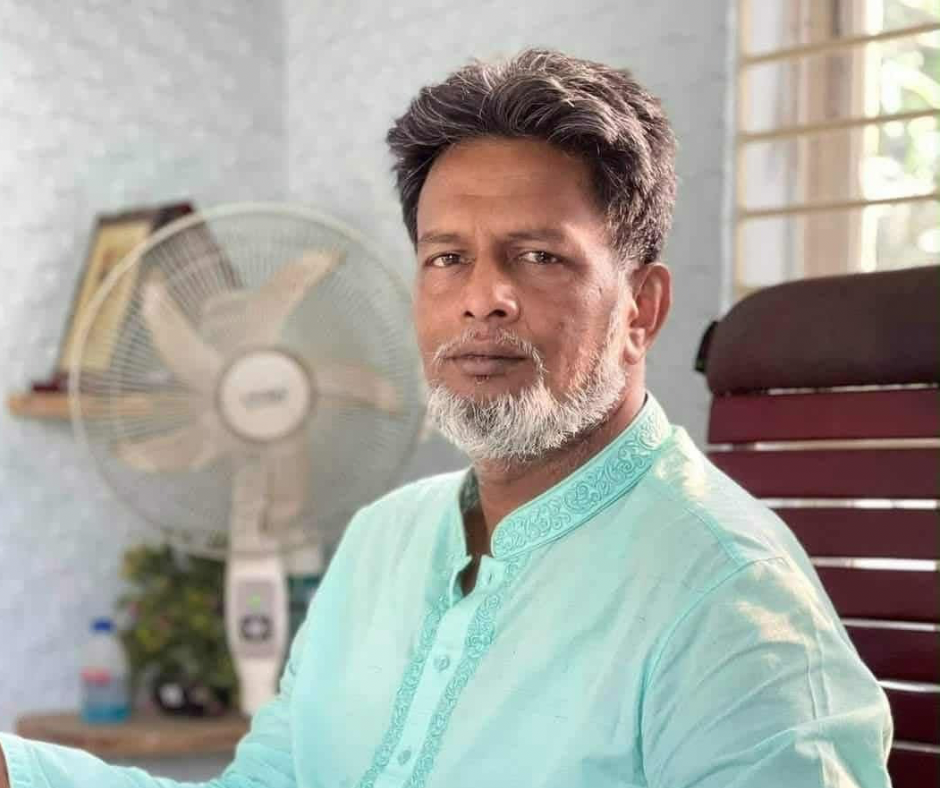Shahadat’s Arrest: A Test for Bangladesh’s Commitment to Justice

Kazi Monowar Hossain Shahadat, chairman of Bhagyakul Union Parishad in Bangladesh’s Munshiganj district, was arrested from his home on April 21, 2024. According to local news reports no formal charges or arrest warrant were presented at the time of his detention.
Police later stated that Shahadat might be linked to a murder investigation involving a rickshaw driver, but no public evidence or court filing was made available. The arrest came just months after a major shift in the country’s political landscape. In August 2024, former Prime Minister Sheikh Hasina stepped down, and a transitional government, led by Nobel Peace Prize winner Muhammad Yunus, assumed power.
The interim administration pledged to restore democratic values, ensure the rule of law, and prepare for national elections in late 2025 or early 2026. But Shahadat’s arrest—without clear legal grounds—raises concerns about whether those promises are being upheld.
Due Process, Not Discretion
In any democracy, no one should be detained without a clear reason. Article 9 of the Universal Declaration of Human Rights says, “No one shall be subjected to arbitrary arrest, detention or exile.” The Constitution of Bangladesh includes similar protections.
At the time of Shahadat’s arrest, police did not cite any specific charges. He was not listed in a known case. There was no court order or public explanation. That matters. Arresting someone without informing them—or the public—of the reasons undermines the legal process and weakens trust in institutions.
Is This Political?
Shahadat is a well-known figure in his local community. He is also a supporter of the Awami League, which held power until August 2024. While there’s no official suggestion that politics played a role in his arrest, the context makes it hard to ignore.
Bangladesh has a long history of political tension. Allegations of politically motivated arrests are not new. If someone with strong community support, but links to the former ruling party, is detained without a warrant, people will have questions. And they deserve answers.
A transitional government is expected to break with the past. That means making decisions based on law, not politics. Shahadat’s arrest is an early test of that standard.
Human Rights and Reputation
In 2024, the United Nations Office of the High Commissioner for Human Rights (OHCHR) released a report criticizing Bangladesh for arbitrary detentions, political violence, and a lack of transparency during protests. Human Rights Watch and Amnesty International have expressed similar concerns.
Detaining a local elected official without charge, even during a transition, risks repeating those same mistakes. The new government has said it wants to restore public trust. That trust will only come from transparency and fairness.
What Should Happen Now
If police have credible evidence linking Shahadat to a crime, they must follow due process. That means filing charges, allowing a fair trial, and ensuring he can defend himself in court. If there is no solid evidence, he should be released immediately.
Keeping someone in custody without clear legal grounds goes against both Bangladesh’s constitution and its international obligations. It also undermines public faith in the idea that this transitional government is truly different.
A Chance to Lead by Example
Bangladesh is at a turning point. The interim government has an opportunity to show that it respects law and rights over politics and power. Shahadat’s case is not just about one person. It’s about how the country treats its citizens when they are vulnerable.
This moment calls for leadership that prioritizes fairness and legal integrity. Arbitrary detention must have no place in a system that claims to be democratic and rights-based.
The arrest of Kazi Monowar Hossain Shahadat may seem like a local matter. But how it is handled will speak volumes about Bangladesh’s future direction. A government committed to change must not repeat old habits.
The test now is not just whether elections will be held. It’s whether justice, accountability, and human rights will be respected—starting with cases like this one.